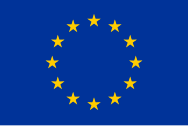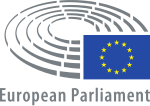Member of the European Parliament
|
Read other articles:

Baruch Agadati Información personalNacimiento 18 de febrero de 1895 Bender (Imperio ruso) Fallecimiento 18 de enero de 1976 (80 años)Tel Aviv (Israel) Sepultura Cementerio Trumpeldor Nacionalidad IsraelíEducaciónEducado en Bezalel - Academia de artes y diseño Información profesionalOcupación Director de cine, bailarín de ballet, coreógrafo, pintor y productor de cine Área Pintura [editar datos en Wikidata] Baruch Agadati en un baile de inspiración hasidică, c. 1925 Baruc...

Esta página cita fontes, mas que não cobrem todo o conteúdo. Ajude a inserir referências. Conteúdo não verificável pode ser removido.—Encontre fontes: ABW • CAPES • Google (N • L • A) (Janeiro de 2022) Luís IV Henrique de Bourbon-Condé Luís IV Henrique de Bourbon-Condé Nascimento 18 de agosto de 1692Versalhes Morte 27 de janeiro de 1740 (47 anos)Chantilly Sepultamento Basílica de Saint-Denis Cidadania França Progen...

Stasiun Hyūga-Kitakata日向北方駅Stasiun Hyūga-Kitakata pada 2010LokasiJepangKoordinat31°28′59″N 131°14′36″E / 31.48306°N 131.24333°E / 31.48306; 131.24333Koordinat: 31°28′59″N 131°14′36″E / 31.48306°N 131.24333°E / 31.48306; 131.24333Pengelola JR KyushuJalur■ Jalur NichinanLetak dari pangkal71.8 km dari Minami-MiyazakiJumlah peron1 peron sampingJumlah jalur1KonstruksiJenis strukturAtas tanahInformasi lainStatusTa...

This article needs additional citations for verification. Please help improve this article by adding citations to reliable sources. Unsourced material may be challenged and removed.Find sources: The Lakes, Las Vegas – news · newspapers · books · scholar · JSTOR (June 2016) (Learn how and when to remove this template message) The Lakes The Lakes is a 2-square-mile (5.2 km2) planned community located within the city limits of Las Vegas, Nevada. It i...

ElsatsoosuElsatsoosu pada sekitar tahun 1873LahirTeritorial Arizona, Amerika SerikatPengabdianAmerika SerikatDinas/cabangAngkatan Darat Amerika SerikatLama dinasc. 1872–1875PangkatCorporalKesatuanU.S. Army Indian ScoutsPerang/pertempuranPeperangan IndianPeperangan ApachePenghargaanMedal of Honor Elsatsoosu (1872 – 1875), juga disebut Elsatsoosh, adalah seorang anggota kepanduan Indian Apache dalam Angkatan Darat Amerika Serikat yang bertugas di bawah Letkol George Crook pada Peperang...

Las ondas de Rossby barotrópicas, denominadas así por Carl-Gustaf Rossby que las identificó en 1939, son oscilaciones que se producen en los fluidos geofísicos (océano y atmósfera) y que tienen su origen en el principio de conservación de la vorticidad potencial.[1] La propagación de la fase de las ondas de Rossby es siempre hacia el oeste aun cuando la energía (velocidad de grupo) puede ser hacia el este (ondas cortas) o el oeste (ondas largas). Las ondas de Rossby se conocen...

Belgian film director Pierre-Paul RendersBorn (1963-07-17) 17 July 1963 (age 60)Brussels, BelgiumOccupation(s)Film director, screenwriterYears active1992-present Pierre-Paul Renders (born 17 July 1963) is a Belgian film director and screenwriter. He has directed three films since 1992. His 2006 film Mr. Average was entered into the 28th Moscow International Film Festival.[1] Selected filmography Thomas est amoureux (2001) Mr. Average (2006) References ^ 28th Moscow Internati...

Caucus of the U.S. Libertarian Party Not to be confused with the Mises Institute or Ludwig von Mises. Some of this article's listed sources may not be reliable. Please help this article by looking for better, more reliable sources. Unreliable citations may be challenged or deleted. (July 2022) (Learn how and when to remove this template message) Mises CaucusLibertarian Party Mises CaucusAbbreviationLPMC[1]Named afterLudwig von MisesFormation2017FounderMichael HeiseTypeParty caucusRegi...

Pekan Olahraga Nasional XI 1985Tuan rumah JakartaUpacara pembukaan9 September 1985Upacara penutupan20 September 1985Dibuka olehSoehartoPresiden Republik Indonesia← Jakarta X Jakarta XII → PON XI diselenggarakan di Jakarta pada tanggal 9 September sampai dengan 20 September 1985. Ketua Penyelenggara: -- Cabang olahraga Bola basket Peserta Daerah Istimewa Aceh Sumatera Utara Sumatera Barat Riau Jambi Sumatera Selatan Bengkulu Lampung &...

1905 U.S. Supreme Court case on the freedom of contract Lochner redirects here. For other uses, see Lochner (disambiguation). 1905 United States Supreme Court caseLochner v. New YorkSupreme Court of the United StatesArgued February 24, 1905Decided April 17, 1905Full case nameJoseph Lochner, Plaintiff in Error v. People of the State of New YorkCitations198 U.S. 45 (more)25 S. Ct. 539; 49 L. Ed. 937; 1905 U.S. LEXIS 1153Case historyPriorDefendant convicted, Oneida County Court, New York, Februa...

Indian TV series or programme SivasakthiTamilசிவசக்தி GenreSoap operaWritten byPa. RaghavanScreenplay byBakhrudeenDirected byS. Sundaramoorthy R. Balaji Yathav M.ACreative directorSujatha VijakumarStarringShamitha Shreekumar Renuka Sabitha Anand Manjari Poovilangu Mohan Snekha NambiarTheme music composerD. Imman (Title Song)Kiran (Background Score)Opening themeSanthosham Thane VazhkaiyileShankar Mahadevan and Shweta Mohan (Vocal)Pa. Vijay (Lyrics)Country of originIndiaOri...

Vijaya MulayMulay in 2010Born(1921-05-16)16 May 1921BombayDied19 May 2019(2019-05-19) (aged 98)DelhiOccupation(s)Documentary filmmaker, film historianRelativesSuhasini Mulay (daughter), Atul Gurtu (son-in-law) Vijaya Mulay (16 May 1921 – 19 May 2019) was a documentary filmmaker, film historian, writer, educationist and researcher. She was lovingly called Akka in film circles.[1] Her close friendships with Satyajit Ray, Louis Malle, Mrinal Sen and other film personalities gave h...

Subgenre of horror film featuring zombies Zombies Zombie Zombie apocalypse Zombie walk In media Films List Zombie comedy Short films and nominal zombie films TV series Video games Novels vte Part of a series onHorror films History Lists By decade 1896–1959 1890s 1900s 1910s 1920s 1930s 1940s 1950s 1960s 1960 1961 1962 1963 1964 1965 1966 1967 1968 1969 1970s 1970 1971 1972 1973 1974 1975 1976 1977 1978 1979 1980s 1980 1981 1982 1983 1984 1985 1986 1987 1988 1989 1990s 1990 1991 1992 1993 19...

Muhammad Salim FakhryAnggota Dewan Perwakilan RakyatRepublik IndonesiaPetahanaMulai menjabat 1 Oktober 2014Daerah pemilihanAceh IKetua Dewan Perwakilan RakyatKabupaten Aceh TenggaraMasa jabatan1 Oktober 2009 – 30 Oktober 2014Wakil Nazarudin Syahbudin BP PendahuluUmuruddin DeskyPenggantiIrwandi DeskyAnggota Dewan Perwakilan RakyatKabupaten Aceh TenggaraMasa jabatan1 Oktober 1997 – 30 Oktober 2014 Informasi pribadiLahir21 Oktober 1968 (umur 55)Kutacane, Aceh Tengg...

Deuterium, 2HUmumSimbol2HNamadeuterium, H-2,Hydrogen-2Proton (Z)1Neutron (N)1Data nuklidaKelimpahan alam0.0115% [1](Bumi)Massa isotop2.01410178 uSpin1+Surplus energi13135.720± 0.001 keVEnergi pengikatan2224.52± 0.20 keVIsotop hidrogen Tabel nuklida lengkap Deuterium disebut juga Hidrogen-2, atau hidrogen berat (simbol ditulis D atau 2H) merupakan salah satu daripada tiga bentuk isotop hidrogen yang terdiri daripada protium, deuterium, dan tritium. Deuterium merupakan isotop sta...

Municipal building in Leicester, Leicestershire, England Leicester GuildhallLocationLeicester, LeicestershireCoordinates52°38′4.9″N 1°8′15.7″W / 52.634694°N 1.137694°W / 52.634694; -1.137694Built1390; 633 years ago (1390) Listed Building – Grade IDesignated5 January 1950Reference no.1361405 Location of Leicester Guildhall in Leicester The Guildhall in Leicester, England, is a timber framed building, with the earliest part dating fro...

United States historic placeQuincy Grammar SchoolU.S. National Register of Historic Places Show map of BostonShow map of MassachusettsShow map of the United StatesLocation88-90 Tyler St., Boston, MassachusettsCoordinates42°20′56″N 71°03′41″W / 42.34889°N 71.06139°W / 42.34889; -71.06139Built1859ArchitectGridley James Fox BryantArchitectural styleItalianateNRHP reference No.100001458[1]Added to NRHPAugust 1, 2017 The Quincy Grammar Sch...

ロシア空軍のSu-25 軍用機の塗装(ぐんようきのとそう)は、軍用機に行われる塗装のこと。主に機体外部の塗装について記述する。 概要 塗装の基本的な目的は、部材(外皮)表面の保護による耐食性・耐候性や美観の維持である。航空機の場合はこれらに加えて燃費低減・ペイロード増大の要請からできるだけ軽量であることが求められる。 軍用機の場合はさらに、�...

Медаль «За військове поранення»фр. Médaille des blessés de guerre Країна ФранціяТип медаль і військова нагородаПідстава за отримані пораненняСтатус вручається Нагородження Засновано: 17 серпня 2016Нагороджені: Черговість Старша нагорода Медаль Національної жандармеріїМоло�...

Italian comic book artist Francesco FrancavillaFrancavilla at Special Edition NYCBornFrancesco FrancavillaNationalityItalianArea(s)Writer, Penciller, Artist, Inker, Letterer, ColouristNotable worksZorroDetective ComicsBlack PantherThe Black BeetleAfterlife with ArchieAwardsFavourite Newcomer Artist Eagle Award 2012Best Cover Artist Eisner Award 2012http://www.francescofrancavilla.comhttp://francesco-francavilla.blogspot.com/pulpsunday.blogspot.comhttp://theblackbeetle.blogspot.com Francesco F...






